In the heart of Humboldt County, a stone’s throw from Murder Mountain, there’s a road called Avenue of the Giants, CA Highway 254, where the largest trees in the world grow including Giant Tree, Flat Iron Tree, and the fallen Dyerville Giant.
Drive east from Avenue of the Giants and there’s nothing but tall forest and marijuana empires for five hours until Redding. An hour into that there’s a bar that’s not on Google maps.
It’s a dilapidated shack painted forest green. A martini with a red cherry on a peeling blue sign: “Mad River OFF SALE.” Hammered into the white plastic door are the three black letters B A R. There’s a neon Raiders logo in the window.
It was the height of early Covid, drinking-only establishments were closed inside and restaurants reduced to various capacity percentages, but I could hear the seal barks of a lively B A R inside. Outside the door I found a dirt-covered old man sitting on the ground, smoking, back up against the rotting wood. He screwed up his eyes.
“You don’t need that mask in there,” he said. “This is cow country, not sheep country.”
Early enough in Covid that we were still washing our groceries, I went a ramblin’. To see far northern California, maybe make it all the way up to Portland. Maybe Seattle. Who knew? The goal was to go. No destination. No research. No real plan. No phones except for maps, pics, audiobooks, and a weekly check in with my wife. I’d go by my gut and talking to strangers.
As for justification, I had little. For myself, I preferred to get Covid over with, acquire antibodies and inoculate against fear. With regard to spreading it, weighing the risk of three weeks alone in the woods versus daily existence in post-apocalyptic Downtown Los Angeles, the choice seemed obvious. In truth, however, weakness, the need for human connection, ultimately overcame logic and I’m genuinely sorry to any old and infirm people I may have put at risk.
As for rationalization, I had plenty. We’re born into a blip in which the average person can move in any direction at a hundred miles per hour. When I’m feeling bad, I take advantage.
The instinct is not new, it’s very old, but today we struggle with it. For the respected modern adventurer—e.g. not me—simple rambling is too little to bear. No, a bona fide “explorer” today must satiate his wanderlust with an expensive sort of ultra freedom that yearns to escape the box but can’t quite do it. A New Yorker article by Ed Caesar titled “Get Lost” described such a trend amongst the wealthy: embarking on “extreme” adventures with a company called Black Tomato. Dropped off alone at a random location, they walk with no phone for several days to another random location.
I put “extreme” in quotes because the rich person has every step mapped for them, is followed by a guide, and has multiple methods of contacting help. Technology called what3words lets you to “find your check-in points with accuracy down to a 3m x 3m square.” “No phones” actually means “two GPS trackers…which also feature a rudimentary text-message capability.” The scariest moment of Caesar’s three day trip is when, while traversing a sparsely populated area in the uncharted wilderness of Morocco, he was approached by strangers asking if he needed help. Caesar became anxious and texted his guide, but didn’t receive a response...until he woke up at 8:15am.
Caesar can admit the artifice. He cuts short his one genuine experience, meeting some Berbers who invite him in for tea, saying, “It wasn’t lost on me how perverse it was to break off an authentic and unusual experience—a chance exchange between mutually interested parties—in order to hew to an arbitrary timetable, on a trip supposedly designed to reconnect me to authentic modes of living.”
Can’t blame Ed…it’s tough to get lost these days. Caesar, Black Tomato, and the whole Outdoors Industrial Complex are clawing at a dead idea of adventure. It’s just not possible to climb any new mountains, explore unknown jungles. That ship, quite literally, has sailed. Today’s edgiest explorers are batshit insane people like Alex Honnold and Audrey Mestre, who climb without ropes and dive without tanks, exploring the human mind and body more than the world. It’s not the New Yorker or Ed Caesar’s fault that there’s nothing left to climb.
Eureka
I rented a Nissan Rogue for $600 for three weeks unlimited and drove north from DTLA. Where I was headed was called the Lost Coast. Mountains prevent highways from hugging the ocean all the way up, leaving a vast pocket of undeveloped forest and black sand beaches intersected by two lane country roads. Its remoteness gave birth to the California weed industry, tucked away in the Humboldt woods for decades before legalization, but what sparked my interest was a shot from HBO’s The Jinx of rocky ocean promontories in Trinidad, California where billionaire Robert Durst murdered people. There was a whole half state above San Francisco I knew nothing about.
After about six hours of driving on familiar highways, I stopped for the night at Hotel La Rose in Santa Rosa, ate pizza and wings boxed in plexiglass, and had my first encounter with the race of talkative, tattooed brunette servers who in far northern California outnumber customers four to one. Thank God for them—my path depended on their guidance.
I woke up with nowhere to go but north. Decided to stop at the homes of my two favorite beers: Russian River Brewery (Pliny the Elder) and Anderson Valley (Briney Melon Gose). Russian River sported a brand new airplane hangar-sized tasting room and the strong scent of hedge fund merchandising. Anderson Valley, in an ancient swath of Sonoma forest near Bohemian Grove where they speak their own language called Boontling, was sadly closed. A brewmaster let me walk the grounds anyway, where I saw their empty disc golf course, empty goat pen, and stinky water capture facility for zero impact brewing.
I continued to the northern end of Highway 1, which putters into the expansive 101 at Mendocino, the gateway to true Northern California. A slice of turquoise beach in Mendocino under high cliffs was so breathtaking that I inquired at a glamping establishment: it was $600 a night and had no availability for six months. The effete clerk also informed me, to my shock and dismay, that state campgrounds were also booked solid and that I’d have to refresh the website for cancellations, because California ultra freedom always requires months of advance planning. I ended up at Bear River Casino instead.
Woke up feeling terrible and Covid-scared and couldn’t find a campground. I drove to Eureka, a small port city packed with drunk vagrants and yoga studios, like Ocean Beach meets Cape Cod (not that I’ve ever been to Cape Cod). A lot was closed. Wandered into a corner cafe right near the water and had a chunk of garlicky halibut on spinach and mushrooms, cup of clam chowder with medium-toasted sourdough, and coffee. The bartender wrote recommendations on a sticky note.
Per her direction I drove up to Gold Bluffs, a state beach campground where the park ranger could not wait to say that oh ho no no no buddy we’ve been booked up for months y’know since the pandemic people are really coming in droves it’s been crazy. So I bought an $8 day pass and drove past some foraging beach Elk, jumped in the crisp cold ocean in my boxers, and looked enviously at the tidy campsites of the persnickety pre-planners who I was increasingly growing to hate. Walked Fern Canyon, a natural corridor with 50 foot fern-and-tourist covered walls. Headed back down to Eureka in search of a cheap motel, but I took the long way down a narrow isthmus on the sea side of Humboldt Bay. Happened across Humboldt Bay Social Club where they offer buckets of grill-your-own Pacific Bucksport oysters the size of your head. Drank white wine and ate garlic bread and an entire jar of homemade pickles and chatted with an annoying San Francisco dad and two of the 25 tattooed brunette servers.
Watching people struggle to grill their giant oysters, the mother of one of the servers asked me if she could join me. Her name was Pam and her daughter went to Humboldt State. The word “tough” comes to mind—sincere, kind, curious, recently divorced. She said Humboldt Bay was the cleanest bay in the state and the source of Kumamoto oysters countrywide. We strolled a drag track by the beach where a motorcycle event was winding down and talked about Gavin Newsom with mutual disgust.
On the way back to my motel I stopped for pizza at a local chain Mountain Mike’s. The pizza was forgettable, but the counter girl, perhaps sensing my growing loneliness, gave me a piece of receipt paper with a hand drawn portrait of a frog on a lily pad. That was not forgettable.
Shelter Cove
Next morning woke up ready for a real ramble. Nowhere to be, nowhere to go. I got in the Rogue and started driving. Two hours winding through forest, passed through an idyllic Victorian town called Ferndale, realized I was headed towards the coast, ended up at a deserted, windy black sand beach, views over farmland, the best views I’ve seen in California, absolutely nothing there. Made a left at the coast to head south, saw signs to a place called Honeydew and figured that sounded nice. Nothing there either. Crashed back into the forest and started winding again until I saw a clearing with a map. A disheveled man was sitting on a picnic table drinking a Bud Light. He looked happy to have some company, so I said hello and I studied the map of a cross section of the Lost Coast and my eye fell on a name—Shelter Cove. “How do I get to Shelter Cove?” I asked. He told me to just keep driving an hour and a half maybe two and I’d see signs.
Swerved fast—the signs said 35 but I kept it at more like 60—through another non-town called Petrolia, the site of the first oil well ever drilled in California in 1865. About 30 minutes outside of Shelter Cove I was clearly back into asshole-land, I could tell because there were three Subarus with ocean kayaks strapped to the roof ahead of me going the speed limit slowing as I roared up behind them. Signs warned me that Shelter Cove was under a “Shelter in Place” order.
In Shelter Cove there’s a C-shaped black beach, the water turquoise with floating logs and giant Pelicans that make dinosaur noises and look almost identical to the logs. Only when you swim up close does the log either remain dormant or furl out a polyester curtain of a mouth and flutter anciently. It was sunny so I laid on the beach and read and listened to one cute couple greet another cute couple—"hi friends!” They must have met at the grocery deli, the only one in town. Later at said very rural seeming grocery deli/bait shop, I was surprised to see two muscular men in their mid-20s with bleach blond faux hawks speaking Portuguese. They were anime handsome and wearing ripped tank tops, like really ripped, and were limping around the aisles red-eyed and strung out. They looked like Brazilian prostitutes transplanted from Ibiza, or more likely from an Ed Buck situation occurring in one of the mansions on the cliffs. It was then that I started to put together that Shelter Cove, an isolated island on the land, is, perhaps like Trinidad, Humboldt, and the rest of the Lost Coast, permeated by a secret darkness.
Indeed, the only open restaurant in town, a brewery called Gyppo, was right next to the air strip; I watched technocrats from San Francisco and Seattle arrive one by one in tiny airplanes non-stop for an hour. A short Indian man in a Palestinian scarf and ripped jeans and his tall friend in the ACLU sweater. An Asian couple in their 50s with identical haircuts and identical walking gaits. Several normcore Epstein golf dads, never with just the woman but always with the woman and the daughter or the friend or the sister, always weathered, natural-looking, dressed down blondes with degrees from Brown or Dartmouth and abandoned dreams of being serious journalists. All would exit the plane and walk up a grassy knoll straight into the brewery. Families hooted and hollered at whale fins in the distance beyond the descending planes and the berry cream ale tasted stale and watery. Gyppo’s tagline, painted on the walls and emblazoned on the menu is, “For a freewheelin’ life.”
I chatted with one of the standard 25 young waitresses to get more of the story about Shelter Cove—how the hell did she end up out here? She had come with friends to hike the Lost Coast trail, which runs from the famous Black Sands Beach up the coast through Petrolia, and had fallen in love with her guide. She went back to Santa Clara but when she graduated she decided to make the move out with him. It was isolating, and a bit weird, but she liked it so far. A lot of the people here were involved with the trail and/or firefighting or fishing, but really the fisherpeople keep to themselves.
The Inn of the Lost Coast looks and sounds like something straight out of Stephen King. It looms over the crashing waves on a rocky promontory, covered in thick mist until at least noon every day. The innkeeper, another attractive divorcee, had come to Humboldt to trim weed, but didn’t like the grueling hours, so got a job cleaning rooms. Two years later she was promoted to innkeeper. There could not be more idyllic place to hunker down and write, but instead I spent four days onewheeling around town, chasing pelicans at the beach, looking at tidepools, hiking the pristine and vacant King Range, drinking shitty beer at Gyppo’s, and watching horror movies in my room. I talked to a few people—an artsy couple from LA in the market for a house, budget $250k, and a hot shot firefighter with severe eczema, or was it a burn, doubling as the hotel barista—but mostly I was introspective and alone sans no phone. It was a struggle, to just sit and stare and sip my beer, and I thought a lot about the battle for relaxation. Who can actually sit and stare into the grey sky and let their mistakes wash over them? Maybe the pelicans.
I refreshed and refreshed the campsite websites, overwhelmed by the ironic idiocy of California gatekeeping nature with a machine, row after row of boxes filled with red xs telling me no no no, until I finally found a spot in Humboldt woods, off Avenue of the Giants, for $77 a night. I was excited to get the hell out of Shelter Cove.
Avenue of the Giants
Set up camp under some redwoods and took in the black blue jays called Steller’s Jays which, like the Pelicans, make awful lizard sounds. I spent a couple of days in the woods, hiking empty trails, swimming in the Eel River, and reading and writing by the fire at night. Made coffee and bacon and fried eggs every morning on the bottletop propane stove. At a rocky river beach called Leatherwood Bar I met some meth-y 20-somethings who played “Chicken Fried” on a JBL Flip which I then of course had to play every fifteen minutes for the rest of the trip.
Without people, hiking with audiobooks in my airpods became my daily source of joy, the correct balance between nature (the maximum amount possible) and technology (the minimum amount possible). Between listening in the car and hiking I made it through four audiobooks. I’d bought a thick guidebook from the ranger station that covered trails hidden in the trees. I’d pick the ones that were strenuous and a couple of hours roundtrip, come down sweaty and drive to the blue-green river and jump in.
Searching for a trail called Five Allens I accidentally drove into a conservation camp, a low security prison where inmates fight fires and conduct forest maintenance. A fireman passing in a pickup turned me around and pointed me to the trailhead. I hiked to the Five Allens summit and found an official sign and a bench, probably a lot more helpful if they’d been at the bottom of the trail instead of the top. On my way back down, sweaty and refreshed, there was something else out of place. A polaroid picture, turned face down, sitting on some ferns next to the trail. A pang of fear. Was this a YouTube prank? I kicked it off the fern with my foot and turned it over. It was a dick pic. I swear to God, a dick pic appeared on my forest path. Must have somehow washed out of the conservation camp.
The morning I was scheduled to check out of the woods I was sitting in my decrepit REI foldable chair finishing my coffee when I was approached by a zaftig woman with grey hair to her ankles. She was also alone; we were the only two solos in a campsite full of loud fat families and their appalling RVs. Her t-shirt said “Weed makes me happy.” She informed me that Gavin Newsom was closing California, and we cursed him with mutual disgust. She’d been there for eight days and knew all about the camp, which shower backed up and which one had the best head, how to properly dispose of your bacon fat, where to get cheaper firewood cause the ranger station ripped you off. Before she left, she gave me a book by Ed McGaa, AKA Eagle Man, called Mother Earth Spirituality. It begins with a letter from Native American Chief Seathl (Seattle) of the Suwamish Tribe allegedly written to the President of the United States, Franklin Pierce, in 1854. At the time, the letter felt serendipitous and meaningful, but reading it today, it feels a little too modern in its sensibility—“and the view of the ripe hills blotted by talking wires,” “after defeat they turn their days in idleness and contaminate their bodies with sweet foods and strong drinks,” “Man did not weave the web of life; he is merely a strand in it.” With the help of talking wires I learned the letter is indeed not real.
I crawled out of the woods feeling like shit, having barely slept, thinking about the curious meat I’d grilled the night before, and of course worrying I had Covid. Back to the corner seafood cafe in Eureka, another halibut and sourdough and coffee and again feeling 1000% better. Next to me at the bar sat a well-dressed jazz session musician: chunky scarf, expensive frames, grey mop, beret. He drank a mimosa, me oyster shooters in chilled vodka. His old German Shepard panted outside in the drizzling rain. We talked for an hour and a half. Mostly about Gavin Newsom. With mutual disgust.
Oregon
Another moment of decision with nowhere to go. I didn’t have time for Portland, let alone Seattle, but I’d chatted with the musician about Crescent City, the northernmost city on the California coast, and southern Oregon. Nothing in Crescent City, he said, but Gold Beach, Oregon? Absolutely beautiful.
Stopped in Crescent City thinking I would get a hotel, go up and see Gold Beach then come back down, but Crescent City sucks so after a pilsner at SeaQuake brewery I decided to keep rolling up the coast. This was my second time crossing into Oregon from California, and both times I was struck by the sudden change. Whether real or perceived, the synesthesic colors of Northern California black (sand, rocks), brown (dirt, Monterey cypress), and maroon (redwoods) shift instantly to bright, luscious green and deep blue in Oregon, more pastoral, more whimsical, the light softer and more diffuse. The beaches are misty and silver grey, the sand divoted like tubs of sour cream. The people are instantly different too: cigarette smokers at the gas station, an elbow hanging out of a dilapidated Pontiac, a firm “yessir” from an adjacent pumper, a sigh of relief as the mask-related tension evaporated and I saw bars with people in them. “Looking for a quiet place tucked back in time? Visit Gold Beach where we remain untouched by the hustle and hassle.”
After about forty minutes of happy driving on calmer roads I made it to Gold Beach. A gorgeous Art Deco bridge called Isaac Lee Patterson runs over the Rogue River. I didn’t want to go back down to Crescent City, so I figured I’d look for a campsite around here, still plenty of daylight. I drove back and forth through town a few times and found a dive bar by a creek, ordered a boilermaker and went out the screen door to the back patio, getting towards dusk, light turning pink, cicadas blasting, the flat water burbling by. Tranquility at last.
But out there was a diverse group of surprised drinkers. “I’m just a random stranger,” I told them, but a friendly ginger in his 30s saw my journal and said “no you’re not, you’re a fellow writer,” and I fell in with them: an intense, new-age alpha female in a floral muumuu, Janet, and her skinny new boyfriend of roughly 60, the ginger writer, and an attractive mid-twenties mixed-race local couple who had just made it official. Janet had been a loan officer in LA for decades, divorced, then moved up to Gold Beach to retire and met the skinny guy, Bill. They ordered three rounds of Duck Farts—an Oregon thing—and they invited me to smoke weed with them outside. We passed a bowl around and around until I was spinning and Bill admitted he grew the very weed we were smoking. I bid them farewell because I was starving and had a reservation at a classy place called Spinners. It was crowded so I sat at the bar and talked to strangers, including a mother and daughter who I persuaded to come back to the creek bar with me where the original crew was still drinking, and we all closed the place down. Before I left, Janet gave some agate stones she’d foraged herself. I woke up in a sunny motel room utterly hungover but otherwise feeling great, bright green Oregon shimmering through the window, a kind innkeeper with vitiligo cleaning in her PJs.
Back Down
Stopped in Trinidad on the way down to take in the scene from The Jinx. More white wine, more oysters, more chowder, more garlic bread. Listened to the seagulls and the waves and a maritime bell chiming in the distance. I’d managed to book my second campsite at Grizzly Creek, also under the redwoods and also near the Eel River. The nights alone were starting to get tough, but I kept airpod hiking, kept swimming, kept writing by the fire.
One day, I asked the forest ranger if there were any bars around open and he said, uhhh no, you do you realize you’re in a state park in the middle of pan…wait actually I think there is something that way, but it’s not on the map. So I drove inland through the dense forest concealing the barely visible entrances to marijuana ranches, many “Keep Out” signs, a couple ramshackle gas stations, four wheelers and Cadillacs, an uneasy, urban feeling disturbing the nature. After an hour or so MAD RIVER OFFSALE appeared, a bar at the ends of the Earth…except not really because there was a burger shack made out of an RV trailer right next to it that had a line out front.
Inside the bar was packed with people, no plexiglass, no masks, no sheep, just cows. A stunning blonde bartender, the platonic form of 1970s Credence Clearwater hippie van girl down to the ringer baseball tee and bell bottoms, bantered with the ruddy-faced owner, a handsome guy in his fifties who gave me, the outsider, a strong glare as I sidled up to the bar. $4 bottle beers and Barefoot wine served in Solo cups, no liquor. There were attractive young women and old, visibly dirty men, both probably varieties of weed trimmers. Next to me at the bar a hipster dad straight from an SUV commercial and a couple of preppy, gelled-haired Mexican guys who could’ve been from anywhere. As soon as I started asking questions, all parties made a point to ignore me—I probably looked like a narc, smelled like a narc, and, by writing this, I am one! The blonde played a dice game with the men hunched over the bar, the whole crowd focused on each roll, a jovial, connected atmosphere, all of them part of the same puppet show, and I credence clearly did not belong. I drank two Pacificos and left. And that was pretty much it.
The headline of Black Tomato’s website is “See the World, Differently.” The image switches between colorized screen savers—hot air balloons over Cappadocia, an arctic fjord, that cozy tent under the Northern Lights—all of which, trust me, you’ve seen before. See, the world. See! The world! I told you the world was there, now pay me to walk around in it.
For the lucky ones, it’s organized. Family. Friends. Girlfriends. Reunions. Homes. Lakefronts. Ski trips. For the rest of us there’s bars. Music. Coffee. The extraneous bits passed through time from the lonely to the lonely. The forgotten parts that have come to define what it is to be human.





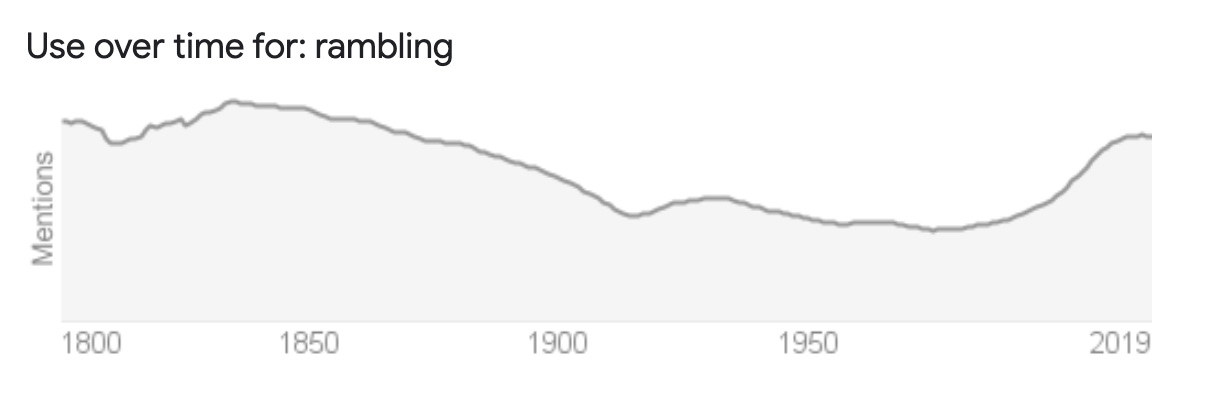
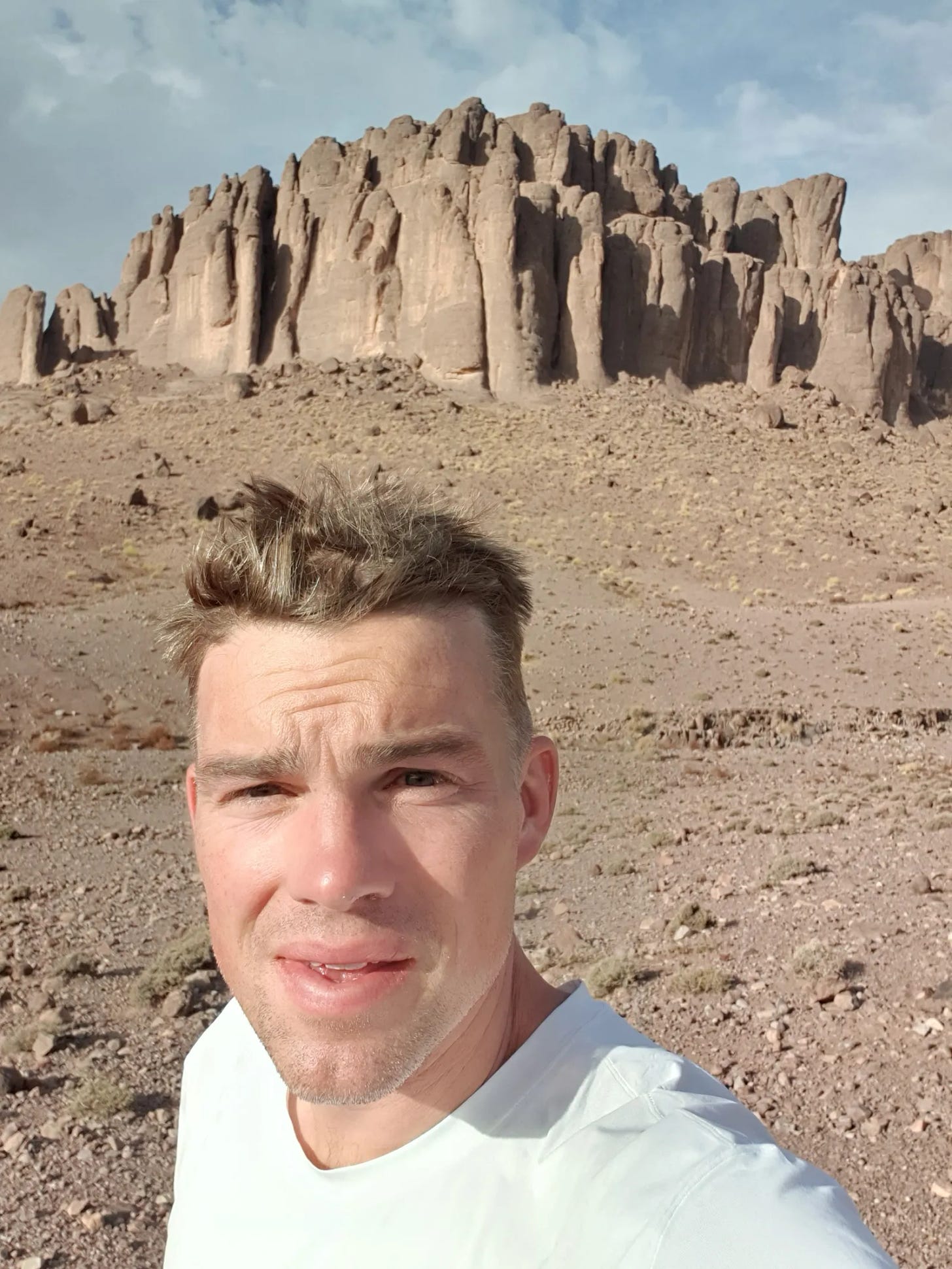
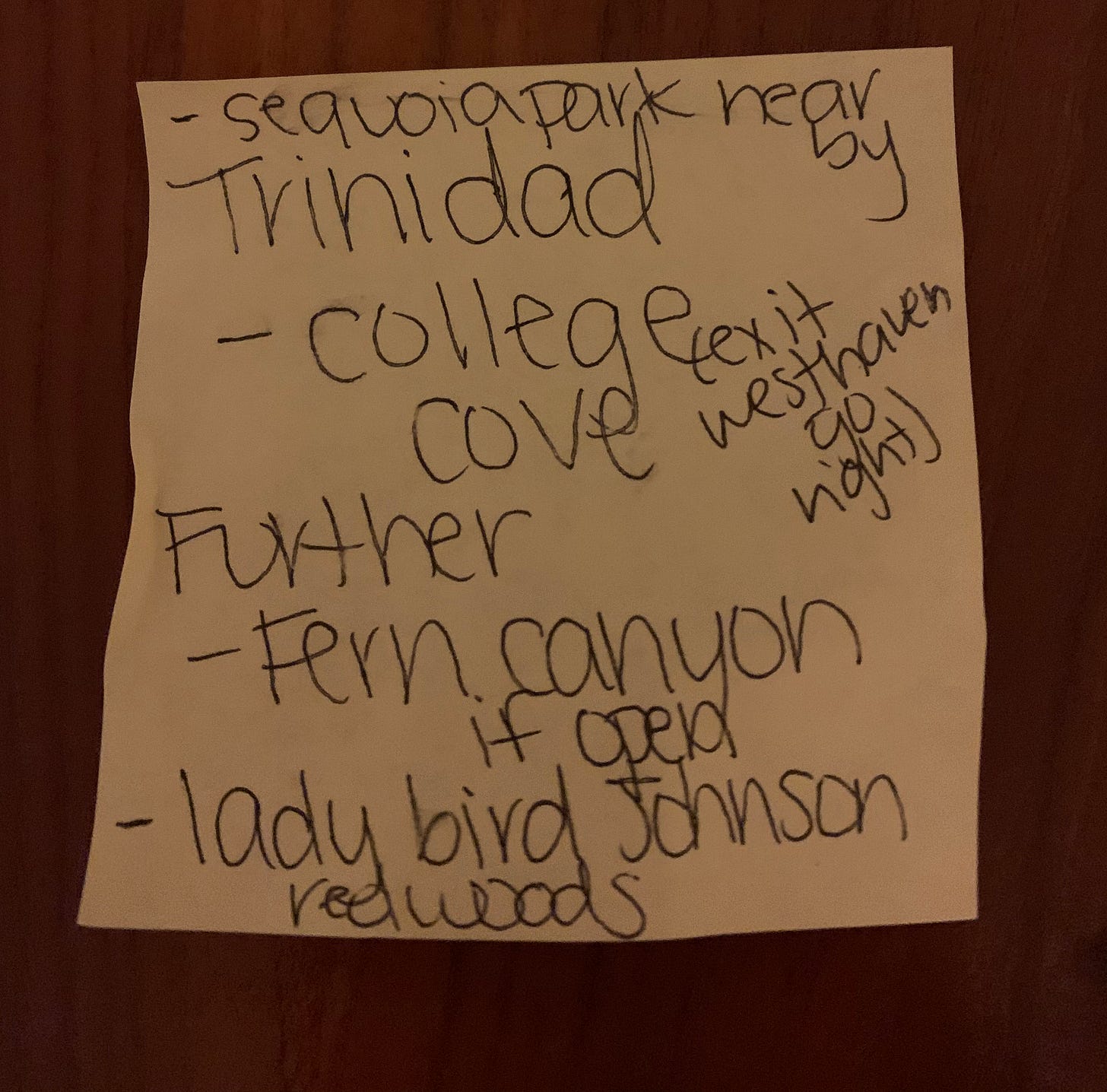
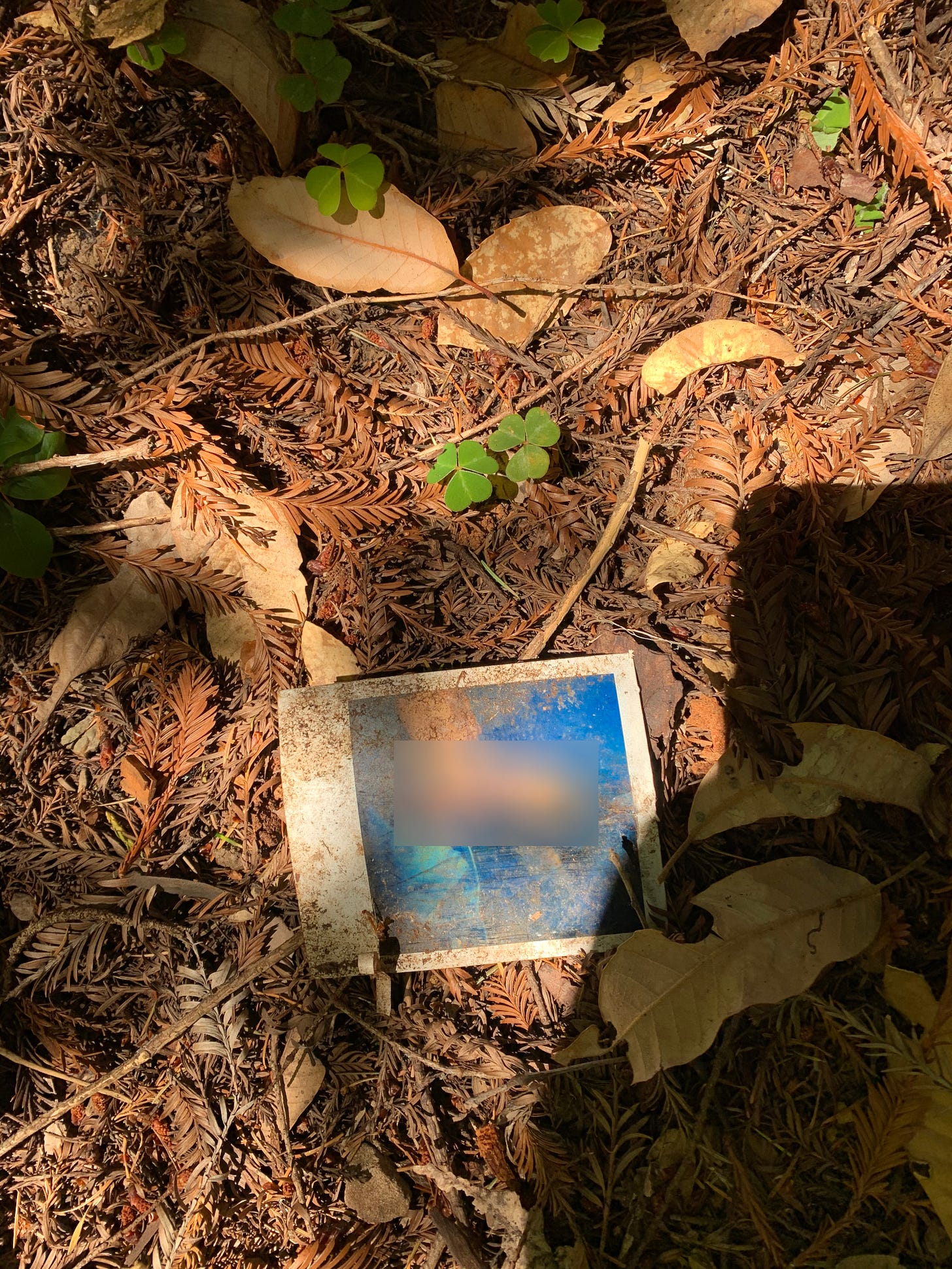
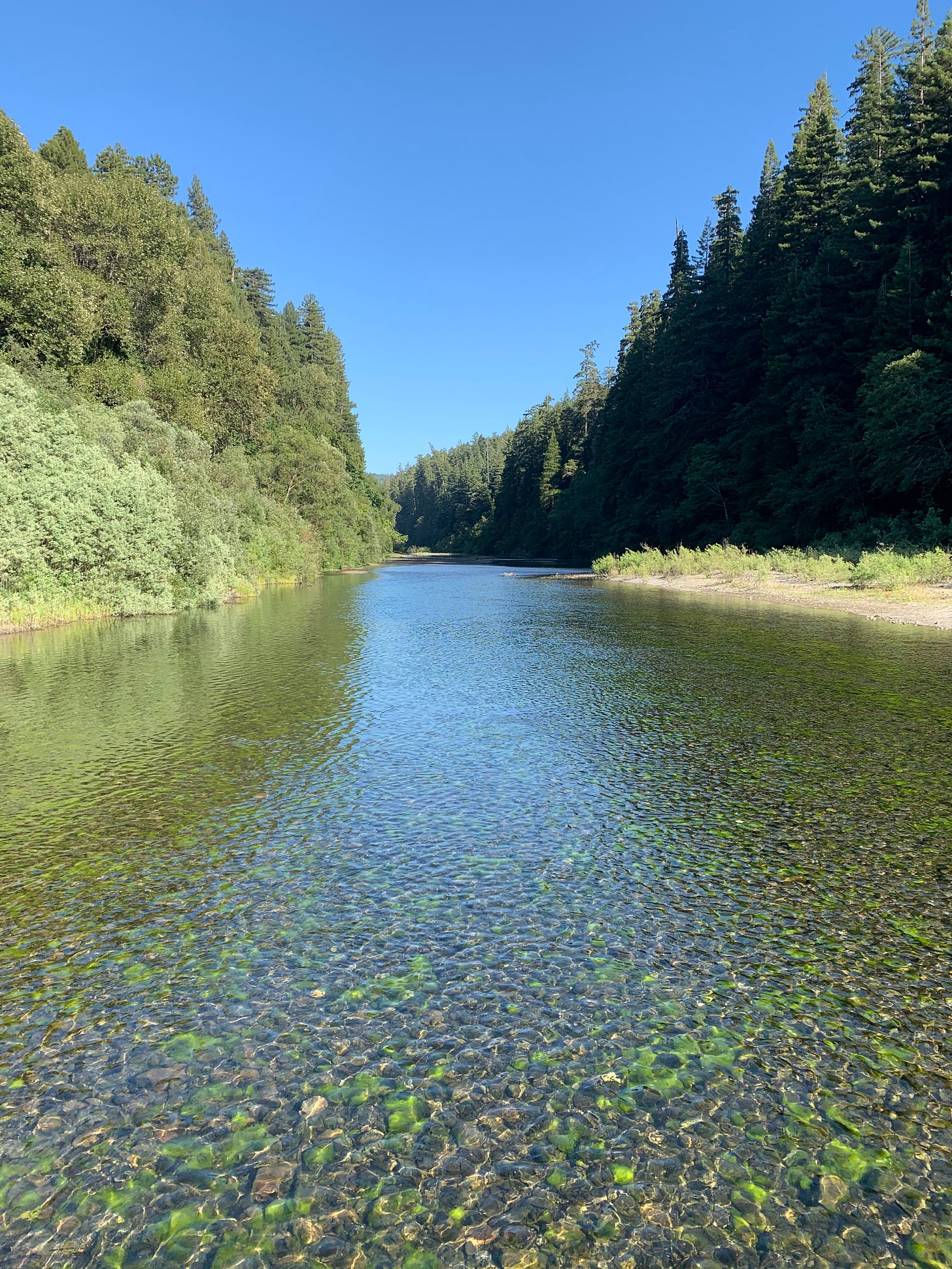
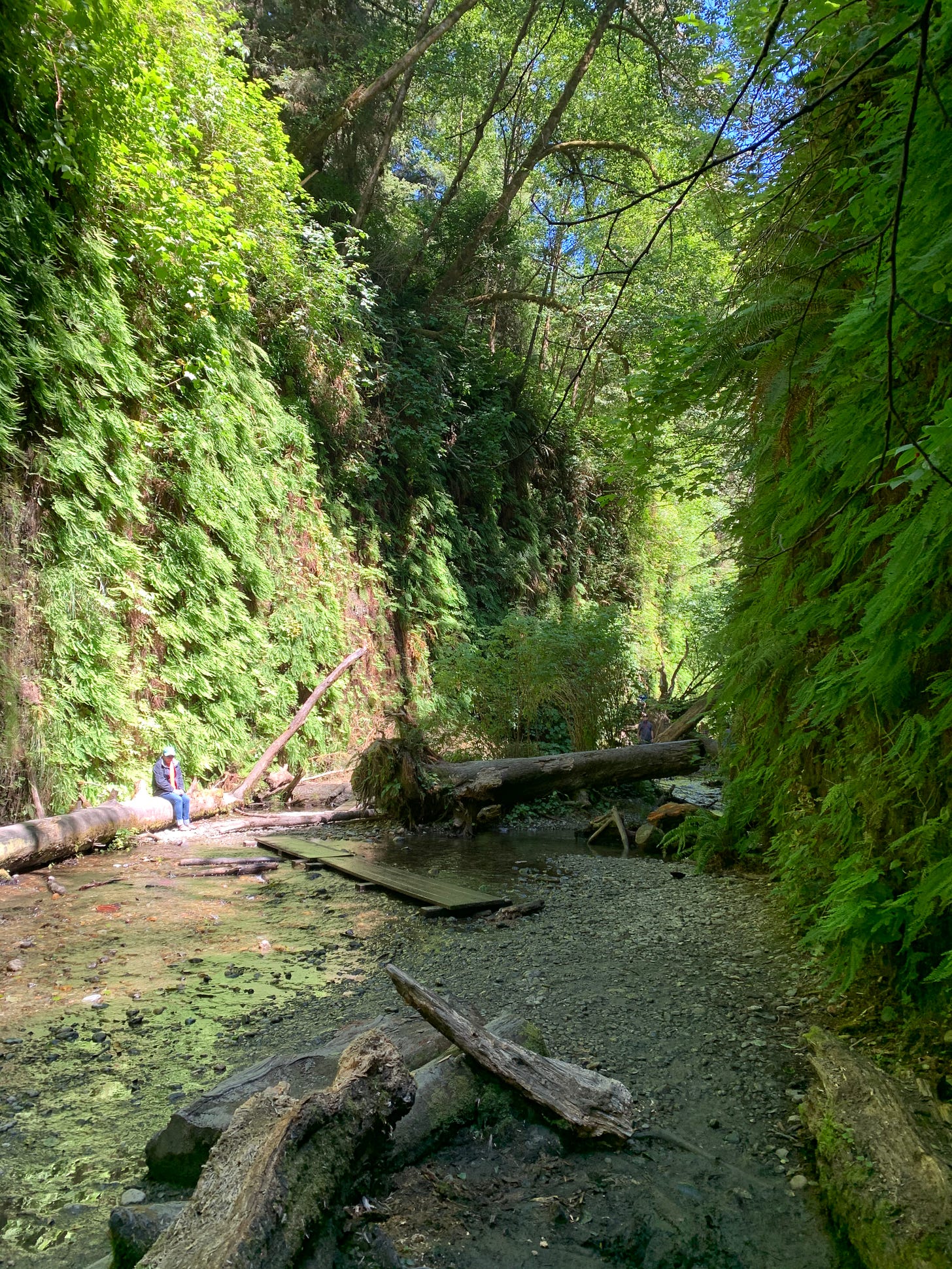
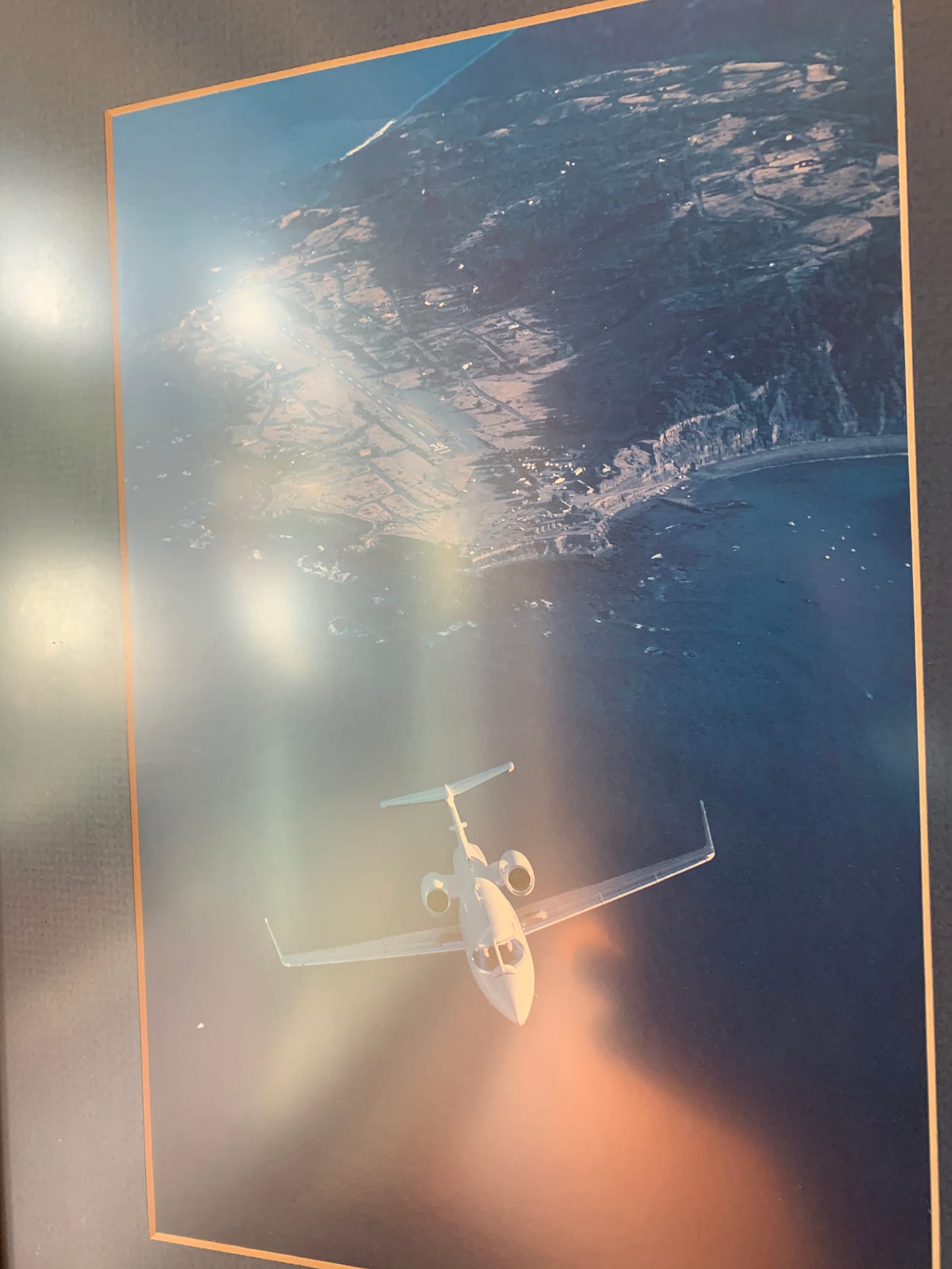
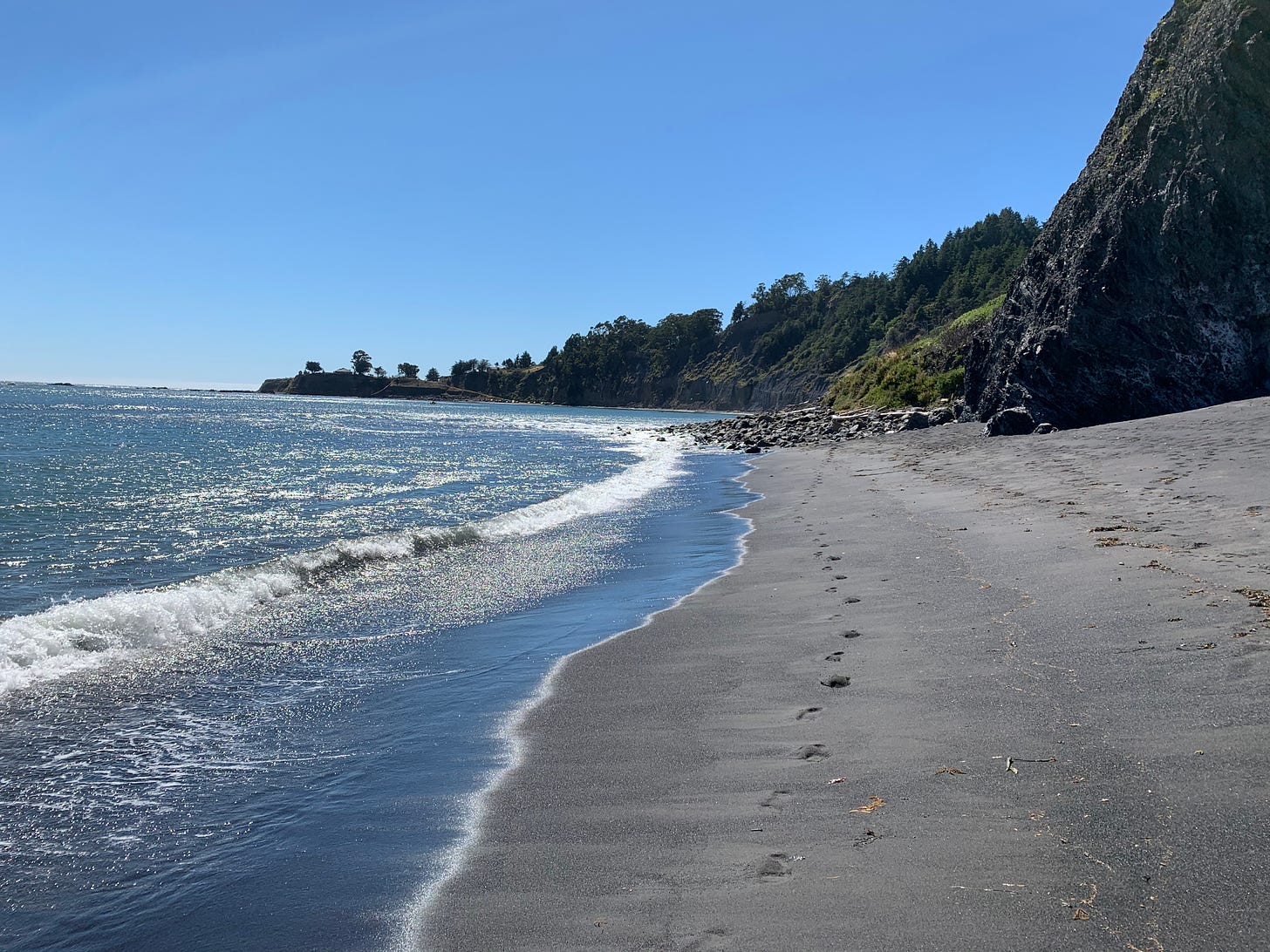
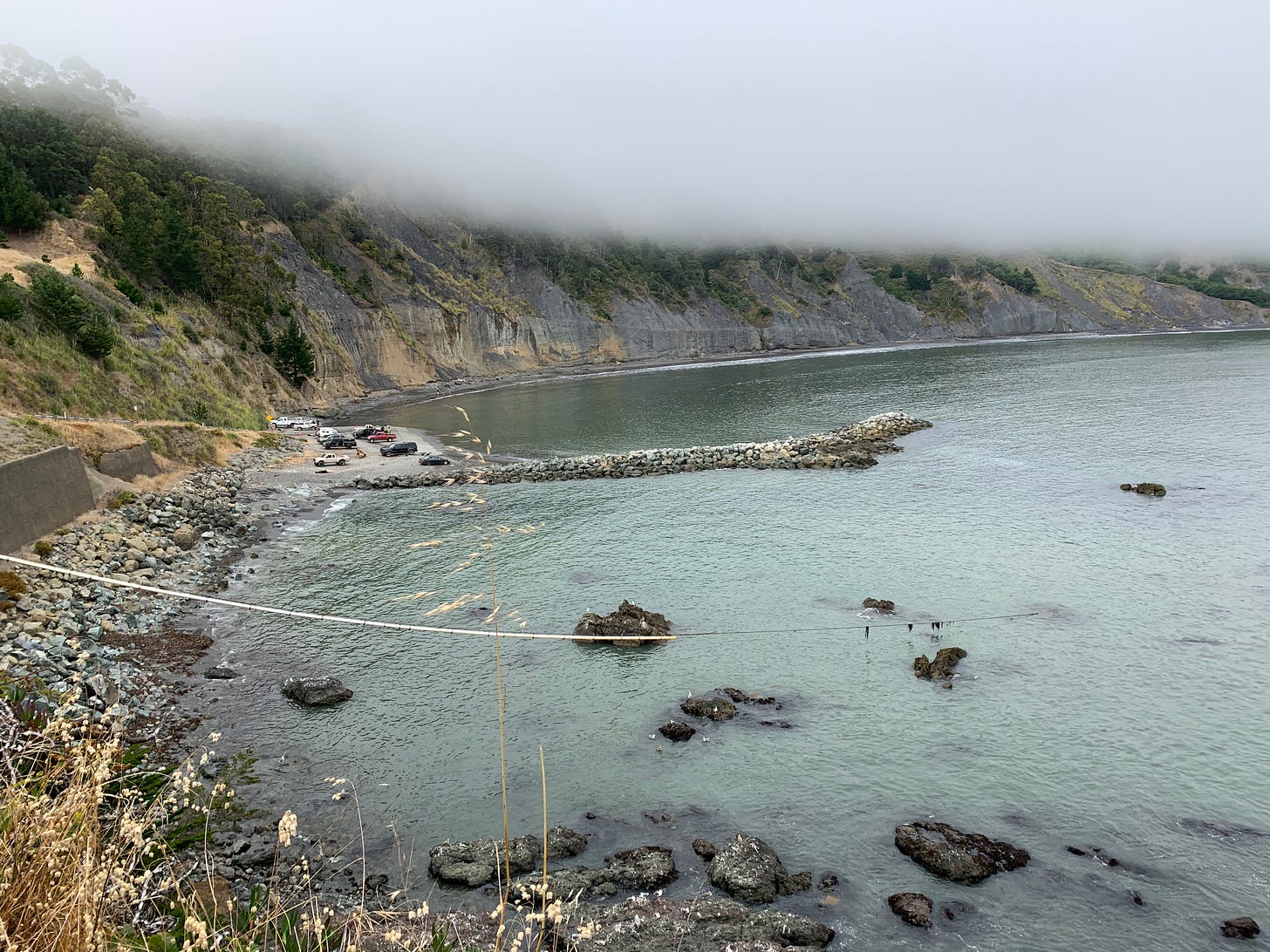
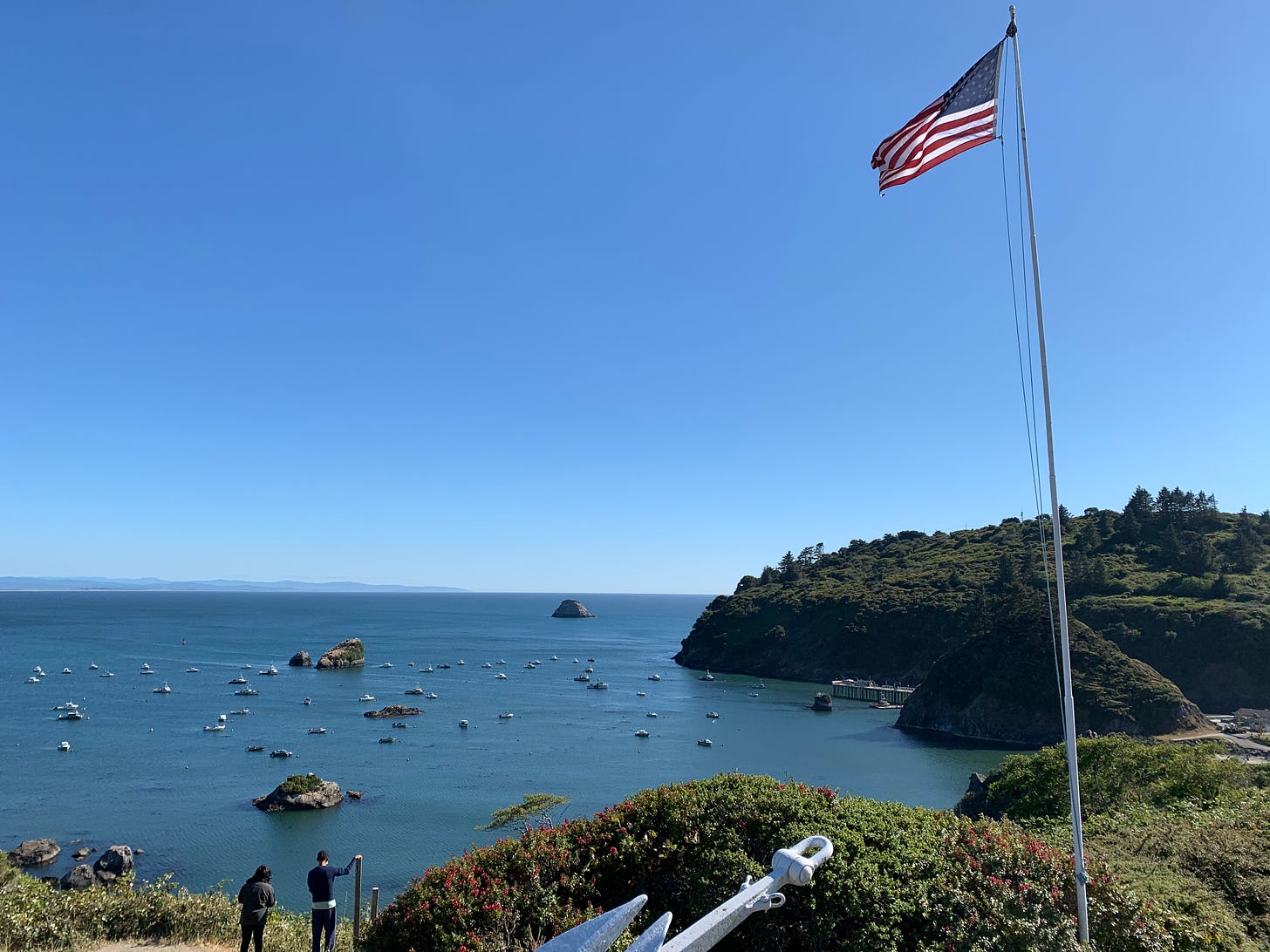
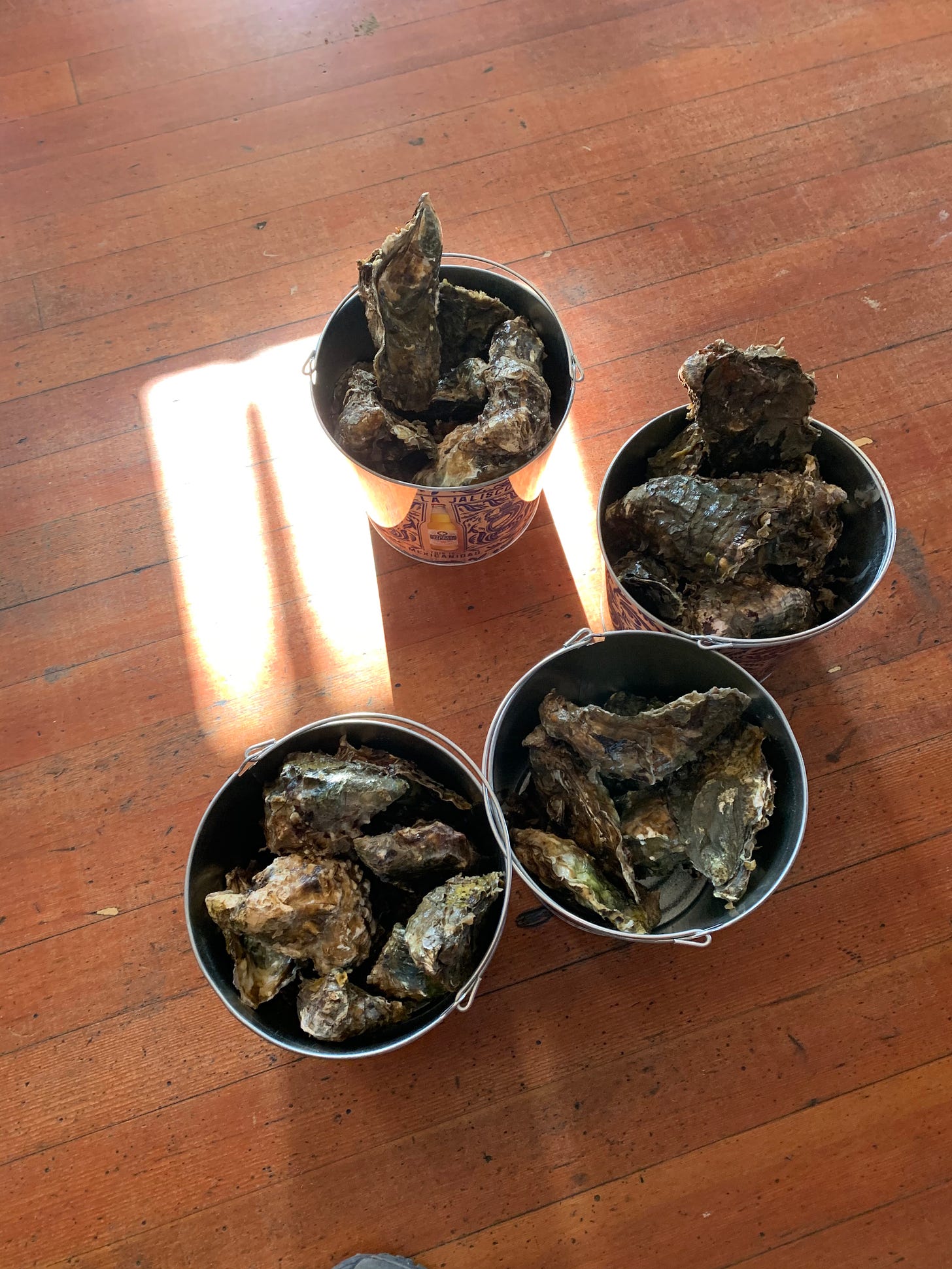
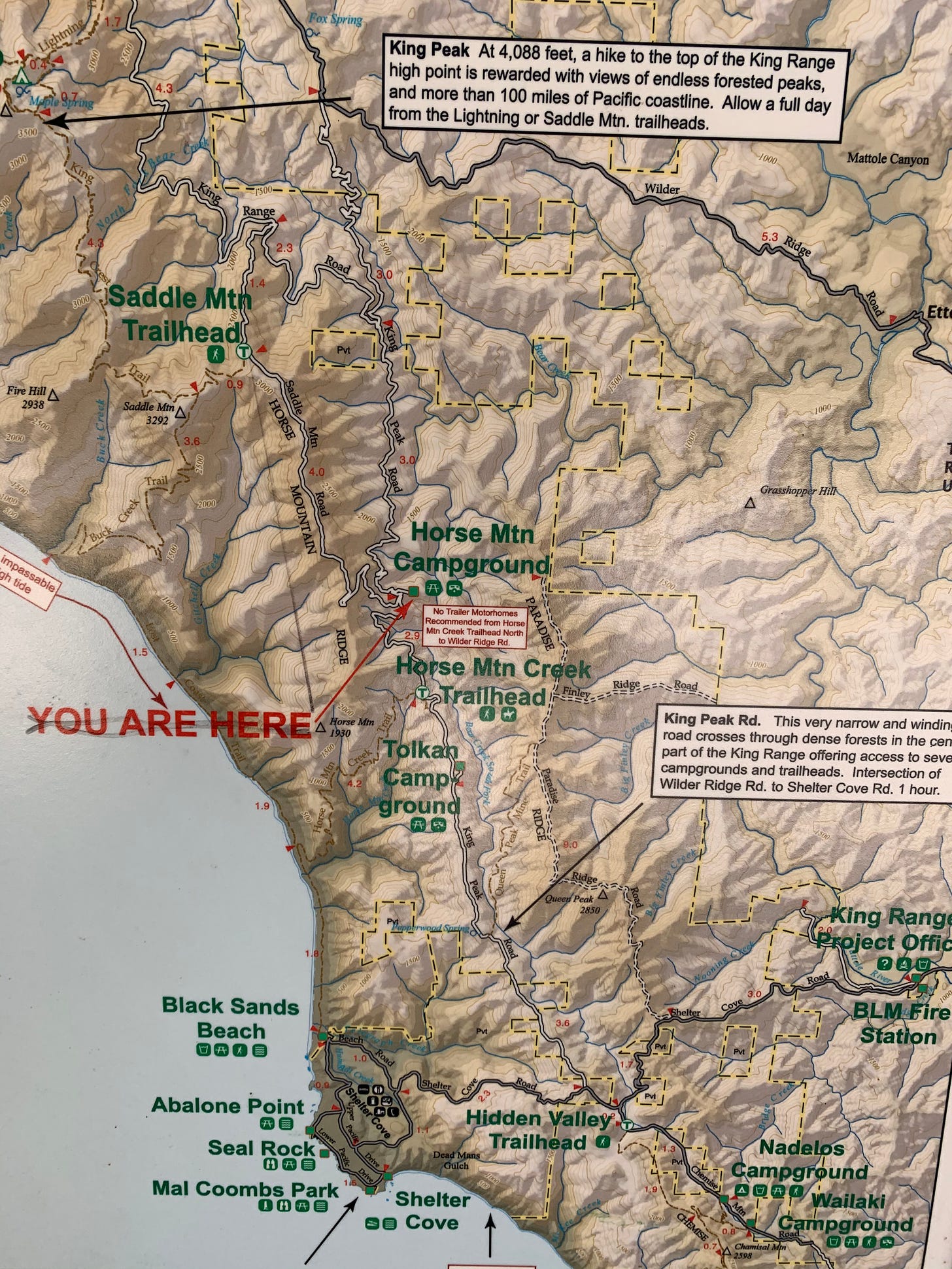
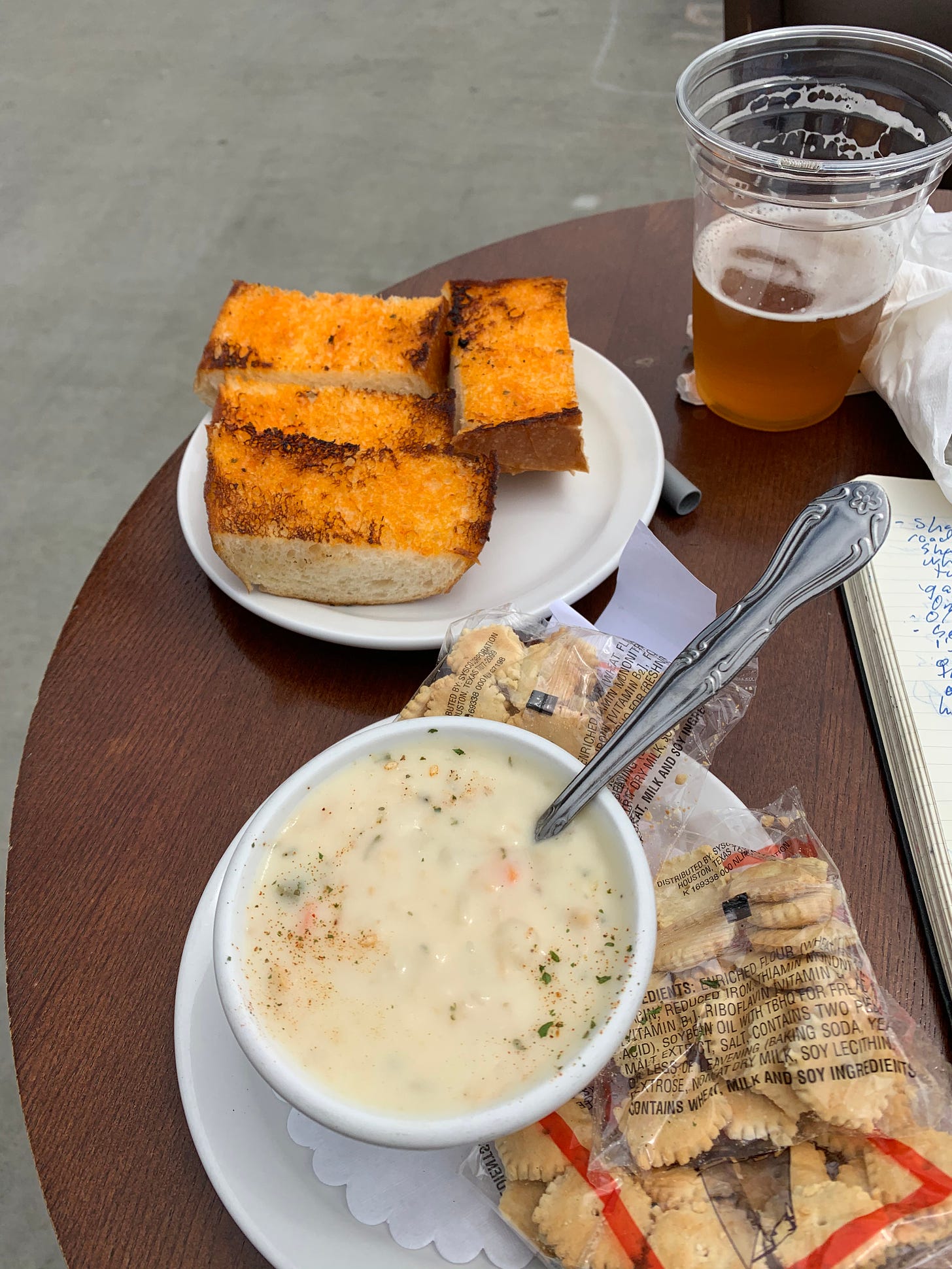
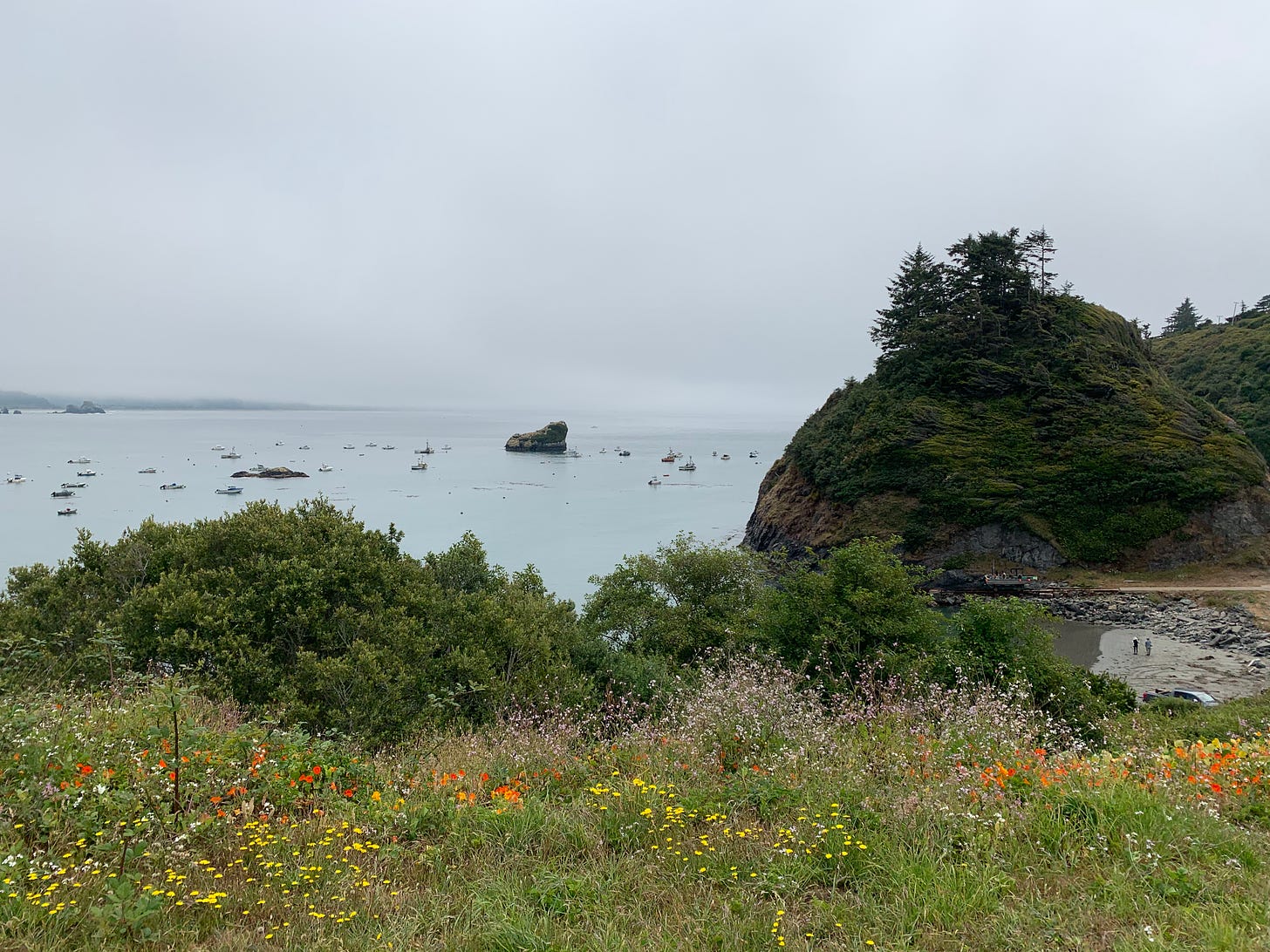

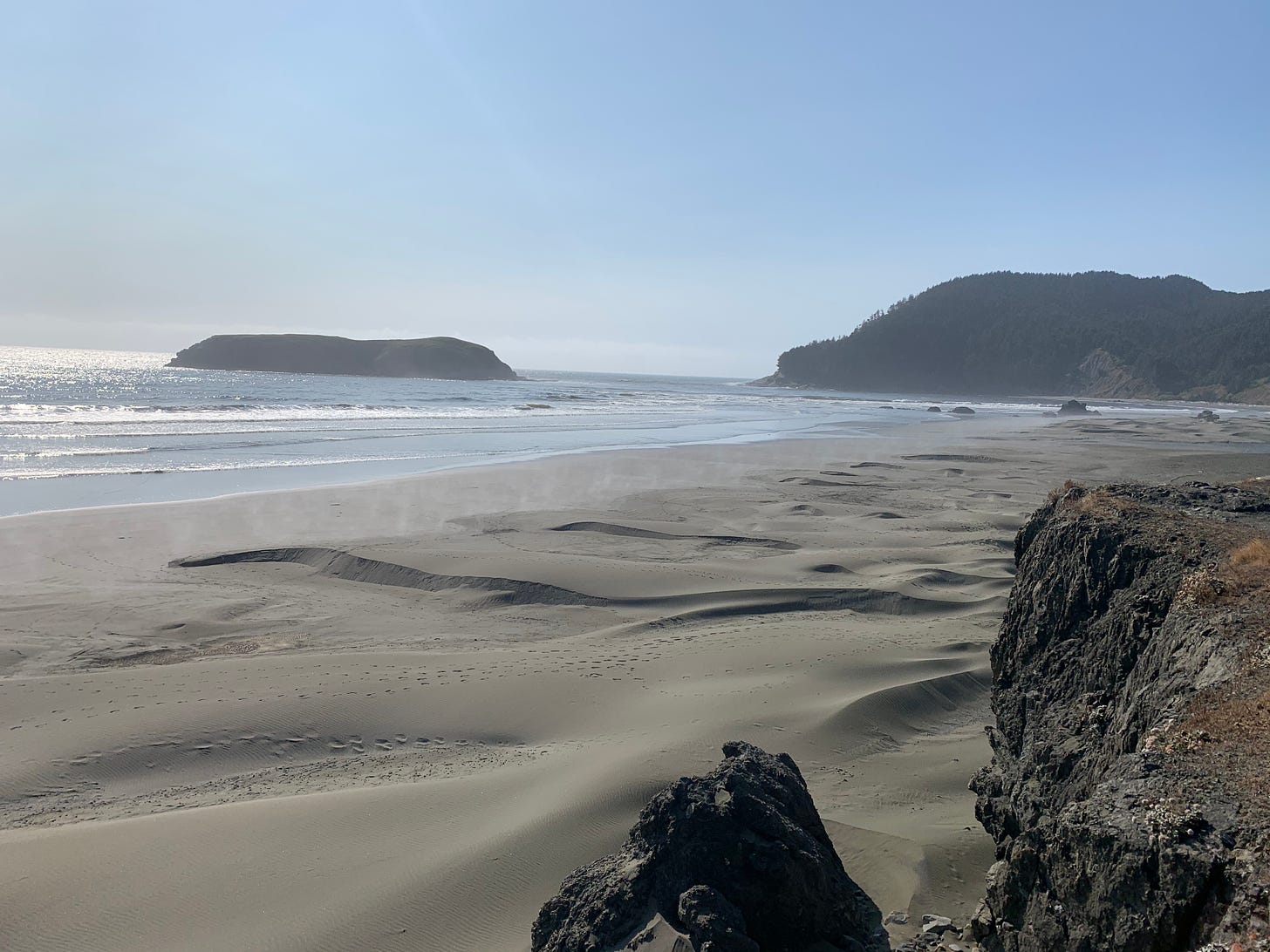
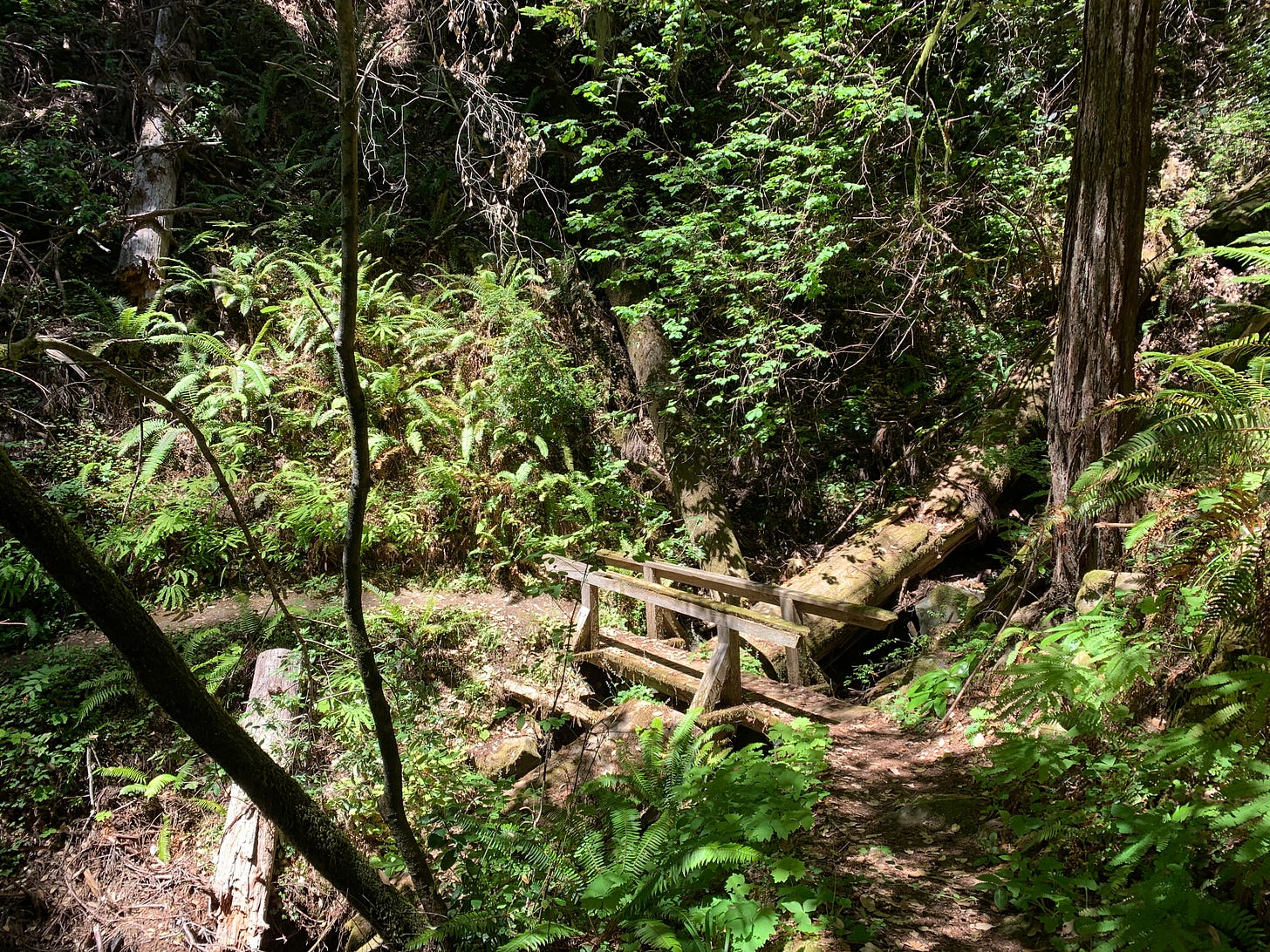
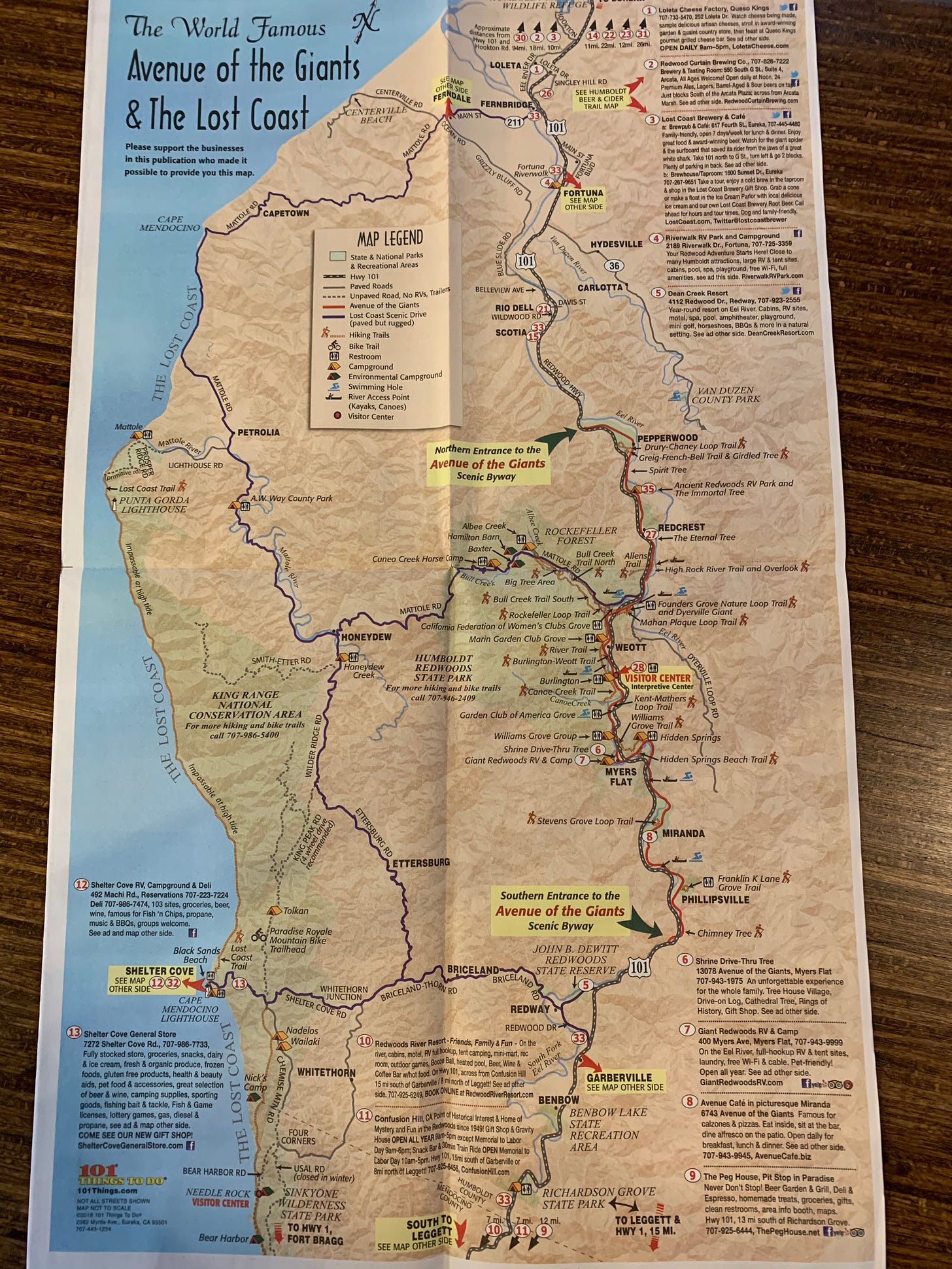
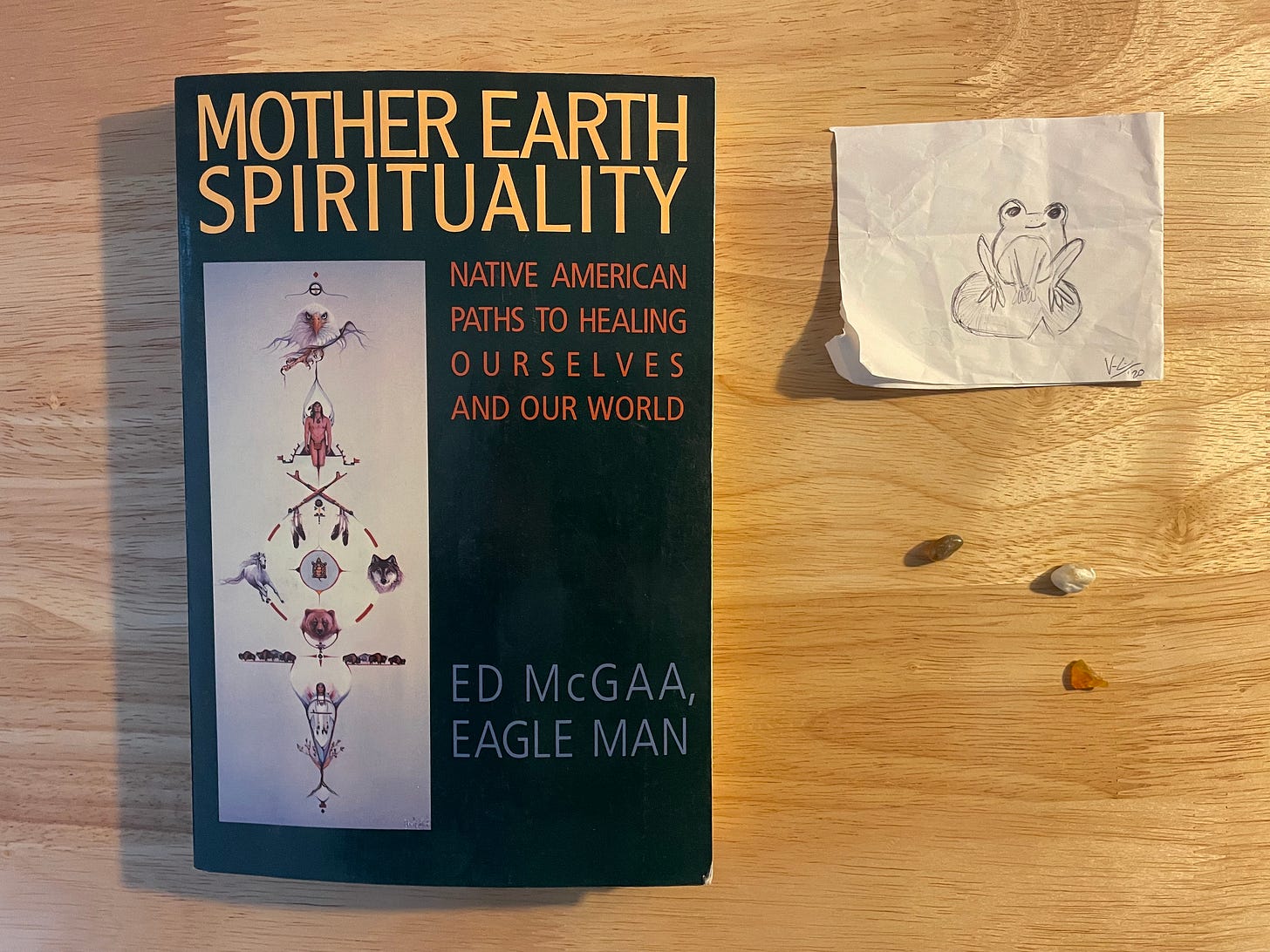
Thoroughly depressing to start, but the desire to slit my wrists and or accept that my children will never experience real adventure beyond video game addiction is replaced by a sorta Bay Area Backroads view of the emerald triangle that gives one a little hope everything won’t be totally ultra homogenized to shit.